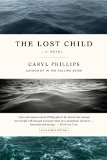Summary | Excerpt | Reviews | Beyond the book | Read-Alikes | Genres & Themes | Author Bio

A deeply moving and unforgettable first novel about the cost of war and the infinite worth of human connection.
An unforgettable first novel about silence, family, and the imperative of
love.
Howard Kapostash has not spoken in thirty years. Ever since a severe blow to
the head during his days in the Army, words unravel in his mouth and letters on
the page make no sense at all. Because of his extremely limited communication
abilities-a small repertory of gestures and simple sounds--most people think he
is disturbed. No one understands that Howard is still the same man he was before
enlisting, still awed by the beauty of a landscape, still pining for his high
school sweetheart, Sylvia.
Now Sylvia is a single mom with troubles of her own, and she needs Howard's
help. She is being hauled into a drug rehab program and she asks Howard to care
for her nine-year-old son, Ryan. The presence of this nervous, resourceful boy
in Howard's life transforms him utterly. With a child's happiness at stake,
communication takes on a fresh urgency, and the routine that Howard has evolved
over the years--designed specifically to minimize the agony of human
contact--suddenly feels restrictive and even dangerous. Forced out of his groove,
Howard finds unexpected delights (in baseball, in work, in meals with his
housemates). His home comes alive with the joys, sorrows, and love of a real
family. But these changes also open Howard to the risks of loss and to the rage
he has spent a lifetime suppressing.
Written with a luminous simplicity and grace, The Ha-Ha follows Howard
down his difficult path to a new life. It is a deeply moving and unforgettable
story about the cost of war and the infinite worth of human connection.
Also available as an abridged or full length audiobook, read by Terry Kinney
 Carolyn Parkhurst
In this brave and graceful novel, Dave King vividly connects us to a character
whose own connections to the outside world are almost nonexistent. As readers,
we get to see inside this man, flawed and funny and complex and tragic as he is,
in a way no one around him can, and we are grateful to Dave King for that
privilege.
Carolyn Parkhurst
In this brave and graceful novel, Dave King vividly connects us to a character
whose own connections to the outside world are almost nonexistent. As readers,
we get to see inside this man, flawed and funny and complex and tragic as he is,
in a way no one around him can, and we are grateful to Dave King for that
privilege. Frederick Busch, author of The Night Inspector
The Ha-Ha is a merry, serious inquiry into how love is given and accepted by a
memorable string characters for whom you will find yourself cheering. Cheers too
for Dave King's accomplished debut.
Frederick Busch, author of The Night Inspector
The Ha-Ha is a merry, serious inquiry into how love is given and accepted by a
memorable string characters for whom you will find yourself cheering. Cheers too
for Dave King's accomplished debut. Nicholas Christopher, author of A Trip to the Stars
The Ha-Ha is an immense pleasure. Stylish and assured, filled
with wit and wisdom, its narrative depth and rich characterizations are all the
more impressive when one considers that this is Mr. King's first novel, the
beginning of what promises to be a wonderful journey-for him, and us.
Nicholas Christopher, author of A Trip to the Stars
The Ha-Ha is an immense pleasure. Stylish and assured, filled
with wit and wisdom, its narrative depth and rich characterizations are all the
more impressive when one considers that this is Mr. King's first novel, the
beginning of what promises to be a wonderful journey-for him, and us. Richard Russo, author of Empire Falls
What earthly business does Dave King have writing a first novel as
wonderfully accomplished and achingly full of heart as The Ha-Ha?. That's
what the rest of us would like to know.
Richard Russo, author of Empire Falls
What earthly business does Dave King have writing a first novel as
wonderfully accomplished and achingly full of heart as The Ha-Ha?. That's
what the rest of us would like to know.A ha-ha, or haha (supposedly named for the reaction
people had on seeing one), is essentially a large ditch built
in place of a fence, to give the appearance that the garden and
surrounding lands are as one. It seems that they were introduced into
the UK from France in the 18th century by Lancelot
'Capability' Brown, or possibly earlier by Charles
Bridgeman. They were part of a movement in gardening away from
formal gardens to a more 'natural' style of landscaping.
As King says, 'there's an actual ha-ha (in the novel), of course, and it plays a major role in
the story, but the symbolic relevance is the presence of a huge unaddressed...

If you liked The Ha-Ha, try these:

by Caryl Phillips
Published 2016
Caryl Phillips reimagines Emily Bronte's melodramatic "Wuthering Heights", weaving the past and the present into a modern story of exile and difference.

by Liz Jensen
Published 2006
The story of a family falling apart, told in the vivid voices of its comatose son and Dr. Dannachet as he is drawn into the family's circle. Full of astonishing twists and turns, this is a masterful tale of the secrets the human mind can hide.